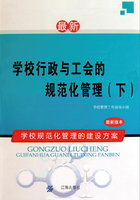How the Dutch and Wends agreed together, within their rampart, inclusive of both, is not said. The river lay between; they had two languages; peace was necessary: it is probable they were long rather on a taciturn footing! But in the oily river you do catch various fish; Coln, amid its quagmires and straggling sluggish waters, can be rendered very strong. Some husbandry, wet or dry, is possible to diligent Dutchmen. There is room for trade also;Spree Havel Elbe is a direct water-road to Hamburg and the Ocean;by the Oder, which is not very far, you communicate with the Baltic on this hand, and with Poland and the uttermost parts of Silesia on that. Enough, Berlin grows; becomes, in about 300years, for one reason and another, Capital City of the country, of these many countries. The Markgraves or Electors, after quitting Brandenburg, did not come immediately to Berlin; their next Residence was Tangermunde (MOUTH of the TANGER, where little Tanger issues into Elbe); a much grassier place than Berlin, and which stands on a Hill, clay-and-sand Hill, likewise advantageous for strength. That Berlin should have grown, after it once became Capital, is not a mystery. It has quadrupled itself, and more, within the last hundred years, and I think doubled itself within the last thirty.
MARKGRAF OTTO IV., OR OTTO WITH THE ARROWOne Ascanier Markgraf, and one only, Otto IV. by title, was a Poet withal; had an actual habit of doing verse. There are certain so-called Poems of his, still extant, read by Dryasdust, with such enthusiasm as he can get up, in the old <italic> Collection of Minne-singers, <end italic> made by MANESSE the Zurich Burgermeister, while the matter was much fresher than it now is.
[Rudiger von Manesse, who fought the Austrians, too, made his <italic> Sammlung <end italic> (Collection) in the latter half of the fourteenth century; it was printed, after many narrow risks of destruction in the interim, in 1758,--Bodmer and Breitinger editing;--at Zurich, 2 vols. 4to.] Madrigals all; MINNE-Songs, describing the passion of love; how Otto felt under it,--well and also ill; with little peculiarity of symptom, as appears. One of his lines is, <italic> "Ich wunsch ich were tot, <end italic>
I wish that I were dead:"
--the others shall remain safe in Manesse's <italic> Collection.
<end italic>
This same Markgraf Otto IV., Year 1278, had a dreadful quarrel with the See of Magdeburg, about electing a Brother of his.
The Chapter had chosen another than Otto's Brother; Otto makes war upon the Chapter. Comes storming along; "will stable my horses in your Cathedral," on such and such a day! But the Archbishop chosen, who had been a fighter formerly, stirs up the Magdeburgers, by preaching ("Horses to be stabled here, my Christian brethren"), by relics, and quasi-miracles, to a furious condition; leads them out against Otto, beats Otto utterly; brings him in captive, amid hooting jubilations of the conceivable kind:
"Stable ready; but where are the horses,--Serene child of Satanas!" Archbishop makes a Wooden Cage for Otto (big beams, spars stout enough, mere straw to lie on), and locks him up there.
In a public situation in the City of Magdeburg;--visible to mankind so, during certain months of that year 1278. It was in the very time while Ottocar was getting finished in the Marchfeld;much mutiny still abroad, and the new Kaiser Rudolf very busy.
Otto's Wife, all streaming in tears, and flaming in zeal, what shall she do? "Sell your jewels," so advises a certain old Johann von Buch, discarded Ex-official: "Sell your jewels, Madam; bribe the Canons of Magdeburg with extreme secrecy, none knowing of his neighbor; they will consent to ransom on terms possible. Poor Wife bribed as was bidden; Canons voted as they undertook; unanimous for ransom,--high, but humanly possible. Markgraf Otto gets out on parole. But now, How raise such a ransom, our very jewels being sold? Old Johann von Buch again indicates ways and means,--miraculous old gentleman:--Markgraf Otto returns, money in hand;pays, and is solemnly discharged. The title of the sum I could give exact; but as none will in the least tell me what the value is, I humbly forbear.
"We are clear, then, at this date?" said Markgraf Otto from his horse, just taking leave of the Magdeburg Canonry. "Yes," answered they.--"Pshaw, you don't know the value of a Markgraf!" said Otto.
"What is it, then?"--"Rain gold ducats on his war-horse and him,"said Otto, looking up with a satirical grin, "till horse and Markgraf are buried in them, and you cannot see the point of his spear atop!"--That would be a cone of gold coins equal to the article, thinks our Markgraf; and rides grinning away. [Michaelis, i. 271; Pauli, i. 316; Kloss; &c.]--The poor Archbishop, a valiant pious man, finding out that late strangely unanimous vote of his Chapter for ransoming the Markgraf, took it so ill, that he soon died of a broken heart, say the old Books. Die he did, before long;--and still Otto's Brother was refused as successor. Brother, however, again survived; behaved always wisely; and Otto at last had his way. "Makes an excellent Archbishop, after all!" said the Magdeburgers. Those were rare times, Mr. Rigmarole.
The same Otto, besieging some stronghold of his Magdeburg or other enemies, got an arrow shot into the skull of him; into, not through; which no surgery could extract, not for a year to come.















